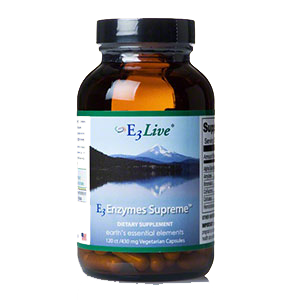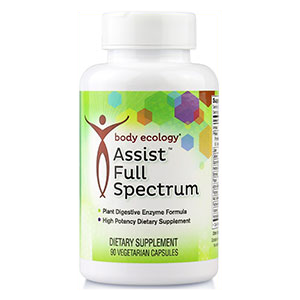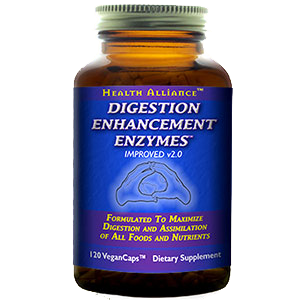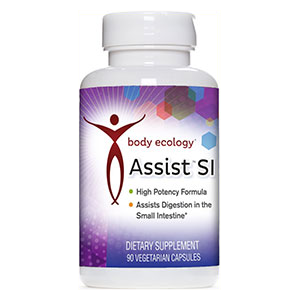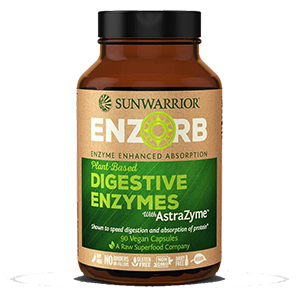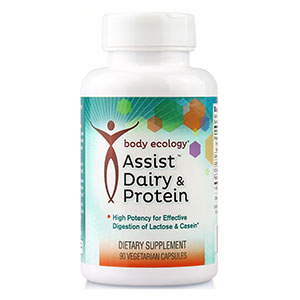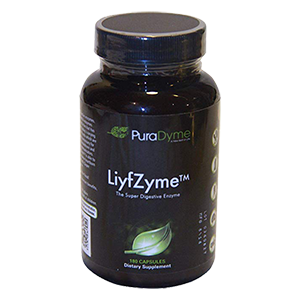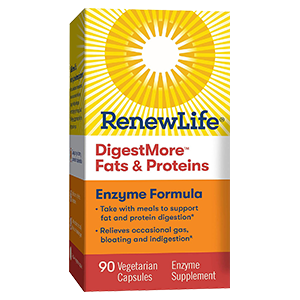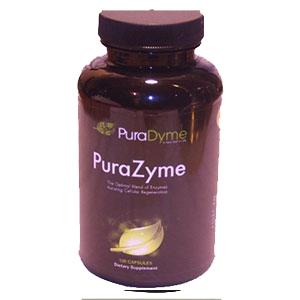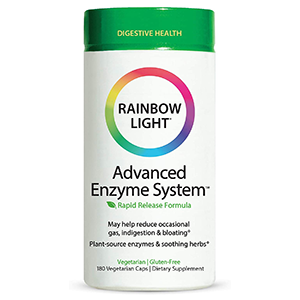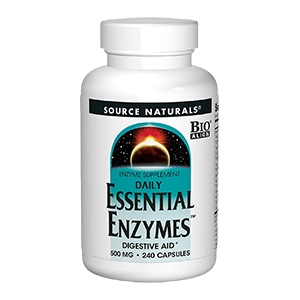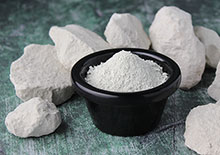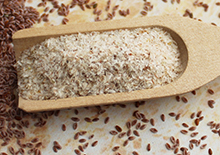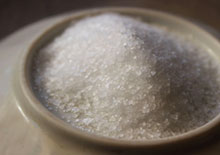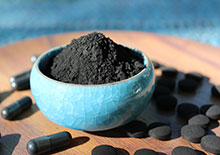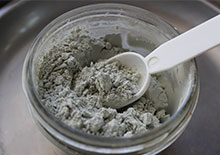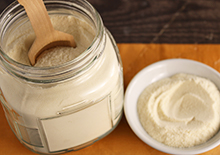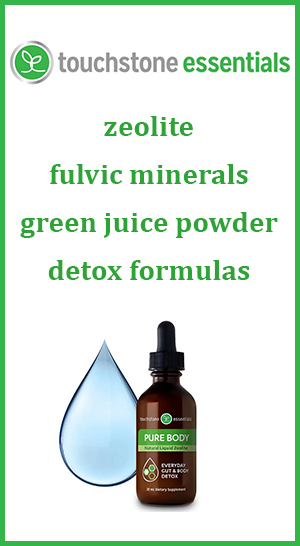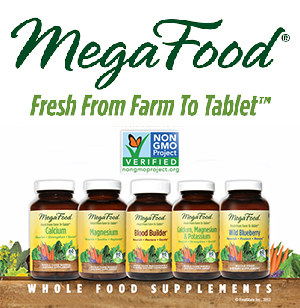- Home
- Super Supplements
- Digestive Enzyme Supplements
Digestive Enzyme Supplements, The Basics - Good or Bad?

Digestive enzyme supplements are lab-extracted enzyme powders often available in capsule form. They are usually derived from plant-based (or fungal) sources but certain types can also come from animal pancreas.
Only recently developed in the last 50 years, digestive enzymes are designed to offer digestive support by essentially assisting in the breakdown of nutrients to help facilitate their uptake by the body.
Plant-based enzymes are the most common types marketed for dietary supplement use in modern times. They contain a blend of different enzyme classes, most brands have at least 15-20 or more different enzymes in their formulas.
This is because each singular enzyme is known to be specific at breaking down either protein, fat, or starch and sugar. In other words, a food enzyme can only improve the digestion of a food substrate, like protein, if it's the right type for that particular food. Supplement capsules, therefore, include a wide range to cover all foods that may make up a meal.
The three major enzyme categories include protease (for breaking down proteins), lipase (for breaking down fats), and amylase (for breaking down carbohydrates). However, many others may be included in a supplement complex.
The general potency of digestive enzymes is frequently indicated on products. The most accurate supplement labels offer measurement in Units (or enzyme activity value) NOT by Weight (or milligrams).
The Theory of "Digestive Enzyme Deficiency"
Typically, glands in the mouth, stomach, pancreas, and small intestine, when functioning optimally, are sufficient at secreting adequate digestive enzymes needed for proper digestion and assimilation.
The theory is however that over time different elements, especially poor eating and lifestyle habits, can affect gland functioning and the number of digestive enzymes produced leading to what is loosely referred to as "digestive enzyme deficiency."
As we age, hydrochloric stomach acid as well as digestive enzyme secretion is also known to decline. Both of which can inhibit the digestion of food, especially proteins, in the elderly population.
Supplemental use of plant-based enzymes is claimed to support the body's own intrinsic digestive processes by replicating digestive enzymes that the body naturally produces, thus making up for potential deficiencies.
In addition, these enzyme powder capsules are likewise reported to help with issues like bloating, gas, fatigue, indigestion, acid reflux and abnormal stool formation.
Most brands recommend on supplement labels that you take them before or with a meal for highest effectiveness. Yet, some health professionals advise their use between meals to encourage cleansing actions via the breakdown of possible accumulated undigested waste material.

Proposed Digestive Enzyme Supplement Benefits
There are four main proposed benefits to taking digestive enzyme supplements:
- To Optimize Digestive Functions - For improving digestion and especially nutrient uptake.
- To Help Build Muscle - Often used by bodybuilders to help utilize protein-rich foods.
- To Support A Healthy Gut Microbiome - Believed to positively influence friendly gut microbiota. Sometimes enzymes are included in probiotic formulas and vice versa.
- To Benefit Immune Functions - Supports the immune system which is connected to healthy digestion and overall condition of the gut microbiome.
Top 4 Digestive Enzyme Supplement Controversies
Although to date there has been very little substantial scientific evidence (*) on the effectiveness of digestive enzyme supplementation, here we present our investigation on the top debated issues regarding their supplemental use. We hope our findings may be of value to you if you are either a current enzyme user or are considering dietary supplementation.
1) Might Not Survive Digestive Tract
2) Supplementation Can Lead to Dependency
3) Digestive Symptoms May Not Be Associated
4) May Interfere with Medications
1) Might Not Survive Digestive Tract
There is the argument that orally ingested digestive enzyme supplements may not survive the entire journey through the gastrointestinal tract. This means that enzyme capsules won't reach the duodenum and small intestine where the last stages of nutrient breakdown occur.
First off, there are two basic types of digestive enzyme replacements. One is over-the-counter supplements, either plant-based digestive enzymes (including fungal and microbial) or animal-derived pancreatic enzymes. The second is prescription pancreatic enzyme medications.
Medications are FDA approved enzymes derived from pig pancreas and have a special coating so that they will make it to the duodenum and small intestine, where alkaline pancreatic juices are naturally secreted. (*) Both medically approved and over-the-counter pancreatic enzymes, commonly called pancreatin, are designed to replicate enzymes produced by the pancreas.
Enzymes as plant-based dietary supplements are mostly designed to help digest food from the mouth to the stomach, which can be very beneficial for the initial stages of digestion. Several brands we came across in fact often recommend you use the straight powder on low-temp meals for the most immediate action.
In addition, some supplement manufacturers along with their list of enzymes also include whole foods, herbs, nutritive ingredients or coenzymes in their formulas. These substances are believed to make enzyme transit more stable and therefore more effective for greater breakdown and uptake of food nutrients.
Interestingly, in one small non-conclusive scientific review, plant-based (microbe-derived) lipase was indicated to be useful over a broad pH range and comparable to animal-derived pancreatic enzyme supplements.
2) Supplementation Can Lead to Dependency
Can your body become dependent on digestive enzyme supplements to digest food?
Well, according to some supplement manufacturers, enzyme supplements do not stop the body from producing its own enzymes. Many report that they simply act as a digestive aid without altering enzyme-producing functions once supplementation is ended. But, keep in mind, this is of course a biased perspective.
From a scientific viewpoint, there is currently little evidence of whether taking digestive enzyme supplements on a regular basis will lead to dependency. Nevertheless, some health experts have strong opinions that excessive intake for long periods of time can in fact weaken the body's own enzymatic capabilities as well as may not be addressing underlying causes.
While there are certain permanent genetic or chronic conditions like "exocrine pancreatic insufficiency" in which some individuals need to supplement long-term with pancreatic enzymes, for most people dietary supplementation is intended for short-term use.
Currently, most agree that suggested product-specific doses are considered safe to take periodically or as a part of a temporary therapeutic protocol to ultimately strengthen the natural processes of digestion. From our experience, they can help to clear up digestive sluggishness so that gastrointestinal functions, like normal enzyme secretions, are less impeded.
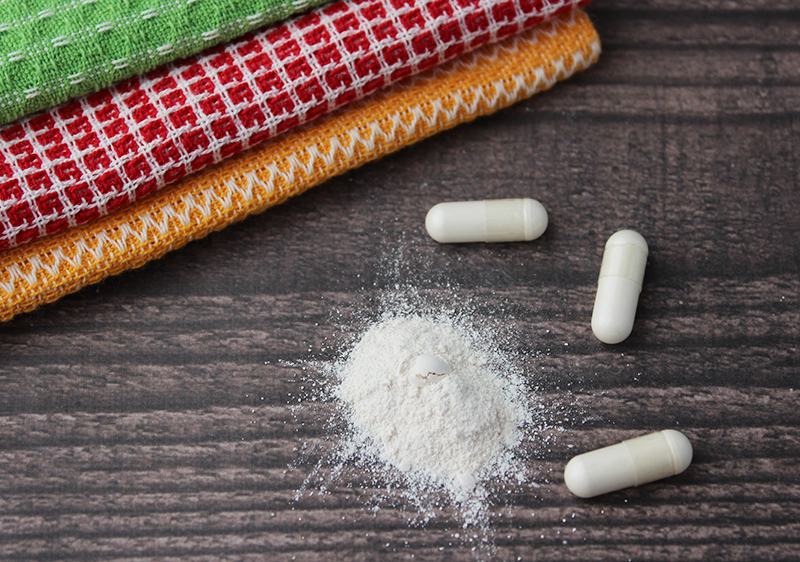
3) Digestive Distress May Not Be From Enzyme Deficiency
While you can get your salvia, stool and blood tested for cases of
pancreatic enzyme deficiency, currently there is no type of medical test
you can get for general "digestive enzyme deficiency" and malabsorption
of nutrients, according to our research.
Many symptoms associated with low production of digestive enzymes by the body, such as gas, bloating and digestive distress can be and often are caused by a number of other factors. Things like improper food combining, overeating, over indulgences, not chewing food and emotional stress can all contribute.
Therefore, taking a digestive enzyme supplement might offer only temporary relief for potential chronic underlying issues that may affect long-term health.
It is also difficult to make general conclusions about how each unique person with their own set of health issues and body constitution will react to digestive enzyme supplements. They may be of benefit to some people, whereas others may find them largely ineffective.
4) May Interfere with Medications
Digestive enzyme supplements can interfere with certain medications. If you decide to use them, it is therefore important to seek the advice of a medical professional before intake. This is true for both over-the-counter as well as prescribed medications.

Actions of Specific Digestive Enzymes:
It is good to read the back of labels for a list of specific enzymes included and their uses relevant to your own health concerns. These numbers listed can be utilized for reference purposes so that individuals may tailor formulas to their own dietary needs.
Protease - Digests proteins into amino acids.
Acid Stable Protease - Capable of acidic protein hydrolysis.
Lipase - Digests fats or oils.
Amylase - Digests carbohydrates.
Cellulase - Digests cellulose fiber and related polysaccharides.
Lactase - Digests the lactose in dairy products.
Sucrase - Digests some types of sugars.
Maltase - Digests complex sugars found in grains.
Invertase - Works to breakdown sugars into usable energy.
Galactosidase -Works to breakdown lactose and non-digestible polysaccharides.
Glucoamylase - Works to convert sugars into usable energy.
Amyloglucosidase - Digests starch.
Hemicellulase - Digests cellulose fiber.
Peptidase (Protease) - Digests protein.
Xylanase - Digests polysaccharide xylan into xylose.
Papain - Proteolytic enzyme for breakdown of proteins.
Bromelain - Works to breakdown protein.
Phytase - Digests phytic acid found in grains, nuts and seeds.
Our Opinion About Digestive Enzyme Supplements
Digestive enzyme supplements should be used in conjunction with a health-promoting diet, not as a crutch for unhealthy lifestyle practices. Diets that are high in cooked, refined, processed, and/or sugary foods and drinks can especially deplete the body's natural digestive enzyme potential.
Ultimately, eating a percentage of food and drinks that are already high in enzymes can be the best approach for long-term health.
You may wish to consider altering your diet to include more enzyme-rich foods like raw fruits and vegetables, fresh-pressed juices, sprouts and of course the wide selection of cultured probiotic-rich food and beverages like kefir, sauerkraut and miso.
The goal is to use enzymes to reset digestive functions and practice a diet in which you don't need them to digest meals.
A quality digestive enzyme supplement can be good to have handy for intermittent use during certain phases of a detox protocol to help eliminate undigested intestinal material.
Not all digestive enzymes are created equal. For periodic supplementation, we recommend reputable brands that are plant-based and include a wide spectrum of enzymes as well as other food-based ingredients, herbs and enzyme cofactors.
Precautions:
Digestive enzymes supplements should be used as directed on product labels. Consult your physician if you are pregnant, nursing, have digestive disorders, ulcers, other serious medical conditions or are taking any prescribed or over-the-counter medications.
Shop Related Products (About Affiliates & Amazon Associate Paid Links)
Affiliate Disclaimer: This section contains affiliate product links. If you make a purchase through our recommended links, we receive a small commission at no additional cost to you. Thanks for the support.
